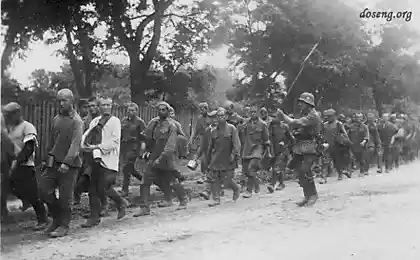583
7 main Soviet memes.
October 26, 1932, Stalin called writers "engineers of human souls." This definition was immediately "meme." Of course, the USSR did not know the word, but aphorisms viral effect in the Union was more than in modern Russia
Source
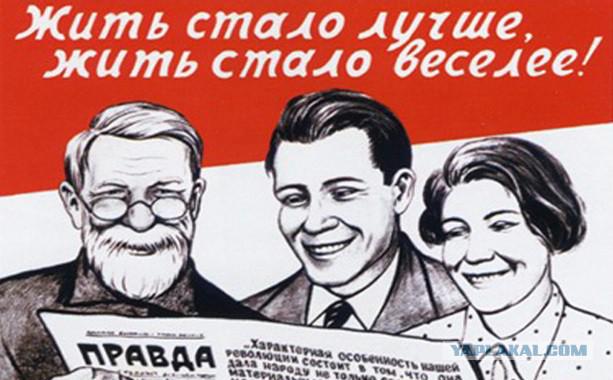
1. "Writers - engineers of human souls»
The role of propaganda in the USSR never underestimated. Socialist realism as a creative method was created largely to praise the achievements of Soviet power. Writers in the Soviet Union were free in his artistic ambitions to a certain point. When the "engineering design" went beyond the boundaries of party plans, the reality for the "engineers" could change beyond recognition. The camps, exile and even executions were held accountable for mistakes.
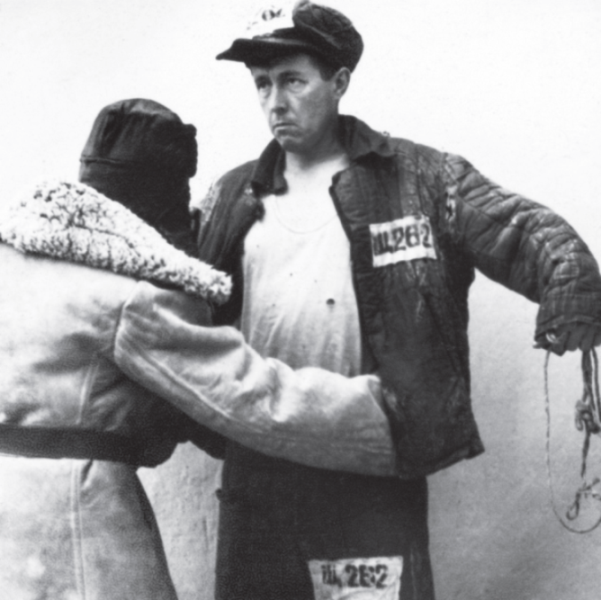
2. "In the USSR, no sex!»
One of my favorite phrases anti-Soviet of all kinds, with which wanted to demonstrate the absurdity of the Soviet way of life. In fact, with this meme it was not all so simple: journalism is called a phrase taken out of context. She sounded in 1986 during a space bridge Moscow-Boston "Women talk to women." The American said: "Our television advertising everything revolves around sex. Do you have such a television advertising? "Rose unknown Soviet woman and said," we do not have sex, and we are totally against it! ". Of course, the teleconference participant meant erotica and pornography, and not the absence of the Soviet Union as a fact of sexual intercourse. However, the meme is firmly lodged in the minds of citizens, for example, has been adopted by some Soviet women who so jokingly, cut off the sexual advances Cavaliers.

3. "Life has become better, life has become merrier!»
This full positive phrase, Joseph Stalin said at the congress rabochih- "Stakhanovite" in 1935. Eventually, after Khrushchev's condemnation of Stalin's cult, this meme began to utter totaling some unpopular decision of the authorities: the currency reform of 1961, cancellation of payments on state loans, the increase in food prices. Rephrase this meme characters in the film "Operation" Y ". "To live, as they say, is good, and good to live even better!».
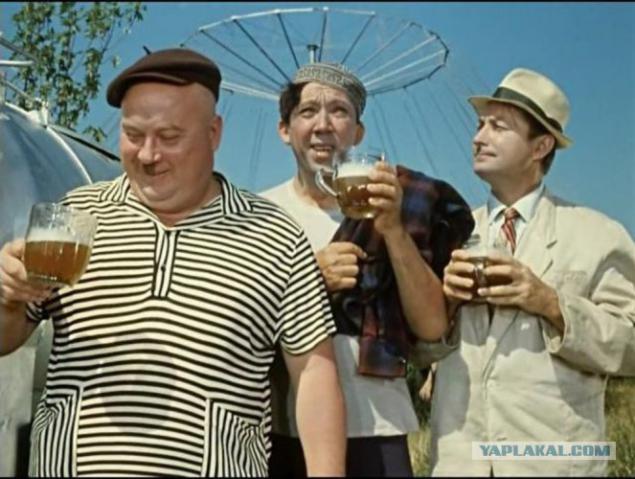
4. "Workers of all countries, unite!»
This call was the most common and recognizable in the USSR since stood as a slogan in every Soviet newspaper. However, ordinary people did not fully understand the greatness of this phrase and used it as a suggestion to miss a glass after work.
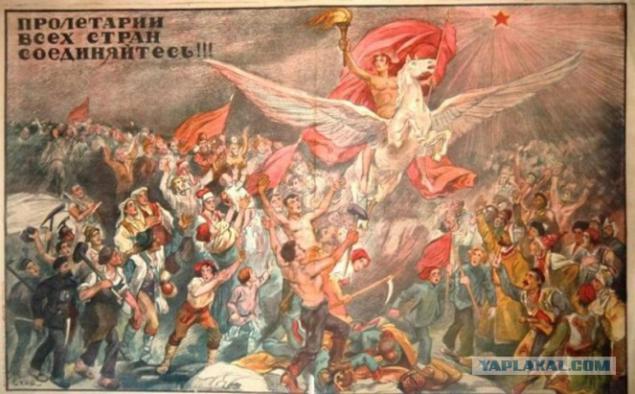
5.Prostoy Soviet man
Meme appeared in the elements of the Russian language with a light hand Vasily Lebedev Kumach, written almost the same name of the song "simple Soviet man" in 1946. There, in particular, were the words:
In pole pride marches,
Reverses movement rivers,
High mountains shifts
Soviet simple man.
It is interesting that over time this meme Soviet citizens began to use (with irony) in respect of different kinds of crooks, "living on unearned income." Probably due to the fact that the latter often were covered by the title of "Soviet man" on police interrogations.
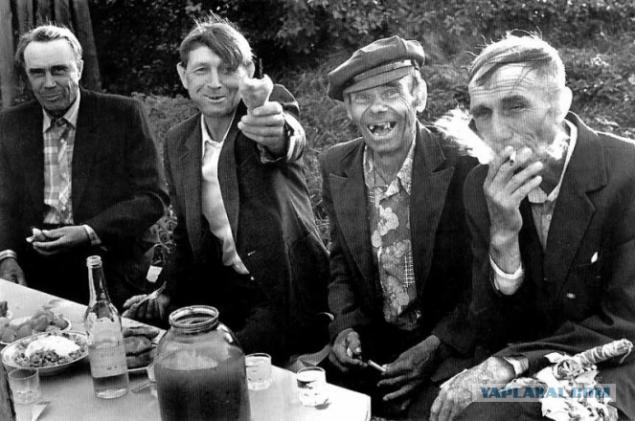
6. "Do not read, but condemn!»
This phrase uttered writer Anatoly Safronov in 1958 at a meeting of the Union of Soviet Writers, which condemned Leonid Pasternak published his novel "Doctor Zhivago" abroad. During the late Soviet Union with this meme mocked Soviet reactionary critics who oppose the publication in the Soviet Union condemns the policy of Stalin's repression of Alexander Solzhenitsyn, Leonid Grossman, Vladimir Voinovich and others.
Around the same time, the phrase has adopted a school teacher of literature who are so careless podnachivat students.

7. "Who does not work shall not eat»
This meme is firmly settled in "phrasebook" Soviet citizen: Fathers zhurili using his his sons, shop foreman - lazy workers, local policeman - parasites. In addition, the phrase replicated millions of Soviet posters. It was based on a quote from one of Lenin's work, where the leader of the Soviet Union, wrote: "He who does not work, neither shall he eat" - it is clear to every worker. " However, few people knew that Lenin had borrowed a phrase from the New Testament, the Apostle Paul's second letter to the Thessalonians, where it says: "For even when we were with you, this we commanded you, that if any would not work, neither should he eat." The phrase was "upside down" in the film "Operation" Y "and other adventures Shurik" and re-sounded like a "Who does not work, then eat. Study, the student ».

Source:
Source

1. "Writers - engineers of human souls»
The role of propaganda in the USSR never underestimated. Socialist realism as a creative method was created largely to praise the achievements of Soviet power. Writers in the Soviet Union were free in his artistic ambitions to a certain point. When the "engineering design" went beyond the boundaries of party plans, the reality for the "engineers" could change beyond recognition. The camps, exile and even executions were held accountable for mistakes.

2. "In the USSR, no sex!»
One of my favorite phrases anti-Soviet of all kinds, with which wanted to demonstrate the absurdity of the Soviet way of life. In fact, with this meme it was not all so simple: journalism is called a phrase taken out of context. She sounded in 1986 during a space bridge Moscow-Boston "Women talk to women." The American said: "Our television advertising everything revolves around sex. Do you have such a television advertising? "Rose unknown Soviet woman and said," we do not have sex, and we are totally against it! ". Of course, the teleconference participant meant erotica and pornography, and not the absence of the Soviet Union as a fact of sexual intercourse. However, the meme is firmly lodged in the minds of citizens, for example, has been adopted by some Soviet women who so jokingly, cut off the sexual advances Cavaliers.

3. "Life has become better, life has become merrier!»
This full positive phrase, Joseph Stalin said at the congress rabochih- "Stakhanovite" in 1935. Eventually, after Khrushchev's condemnation of Stalin's cult, this meme began to utter totaling some unpopular decision of the authorities: the currency reform of 1961, cancellation of payments on state loans, the increase in food prices. Rephrase this meme characters in the film "Operation" Y ". "To live, as they say, is good, and good to live even better!».

4. "Workers of all countries, unite!»
This call was the most common and recognizable in the USSR since stood as a slogan in every Soviet newspaper. However, ordinary people did not fully understand the greatness of this phrase and used it as a suggestion to miss a glass after work.

5.Prostoy Soviet man
Meme appeared in the elements of the Russian language with a light hand Vasily Lebedev Kumach, written almost the same name of the song "simple Soviet man" in 1946. There, in particular, were the words:
In pole pride marches,
Reverses movement rivers,
High mountains shifts
Soviet simple man.
It is interesting that over time this meme Soviet citizens began to use (with irony) in respect of different kinds of crooks, "living on unearned income." Probably due to the fact that the latter often were covered by the title of "Soviet man" on police interrogations.

6. "Do not read, but condemn!»
This phrase uttered writer Anatoly Safronov in 1958 at a meeting of the Union of Soviet Writers, which condemned Leonid Pasternak published his novel "Doctor Zhivago" abroad. During the late Soviet Union with this meme mocked Soviet reactionary critics who oppose the publication in the Soviet Union condemns the policy of Stalin's repression of Alexander Solzhenitsyn, Leonid Grossman, Vladimir Voinovich and others.
Around the same time, the phrase has adopted a school teacher of literature who are so careless podnachivat students.

7. "Who does not work shall not eat»
This meme is firmly settled in "phrasebook" Soviet citizen: Fathers zhurili using his his sons, shop foreman - lazy workers, local policeman - parasites. In addition, the phrase replicated millions of Soviet posters. It was based on a quote from one of Lenin's work, where the leader of the Soviet Union, wrote: "He who does not work, neither shall he eat" - it is clear to every worker. " However, few people knew that Lenin had borrowed a phrase from the New Testament, the Apostle Paul's second letter to the Thessalonians, where it says: "For even when we were with you, this we commanded you, that if any would not work, neither should he eat." The phrase was "upside down" in the film "Operation" Y "and other adventures Shurik" and re-sounded like a "Who does not work, then eat. Study, the student ».

Source:

